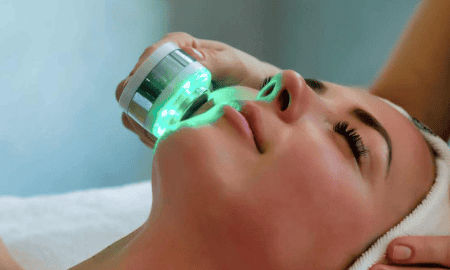
Struggling to fall asleep can be a frustrating experience that affects both our physical and mental well-being. From the relentless tossing and turning to the endless cycle of anxious thoughts, sleeplessness can disrupt our lives in myriad ways. However, with the right strategies and habits, achieving a restful night’s sleep is within reach for anyone. In this article, we will explore practical tips and techniques to help you bid farewell to sleepless nights and embrace the rejuvenating power of quality sleep.
Establish a Calming Bedtime Routine
Creating a calming bedtime routine can signal to your body that it’s time to unwind and prepare for sleep. Start by setting a consistent bedtime and wake-up time, even on weekends, to regulate your body’s internal clock. Engage in relaxing activities before bed, such as reading a book, practicing gentle yoga, or taking a warm bath. Avoid stimulating activities like watching TV or scrolling through your phone, as the blue light emitted from screens can interfere with your body’s production of melatonin, the hormone that regulates sleep.
Furthermore, be mindful of your environment. Make your bedroom a sanctuary for sleep by keeping it cool, dark, and quiet. Invest in comfortable bedding and consider using white noise machines or earplugs to block out any disruptive sounds. By establishing a soothing bedtime routine and optimizing your sleep environment, you can create the ideal conditions for falling asleep effortlessly.
Practice Mindfulness and Relaxation Techniques
Incorporating mindfulness and relaxation techniques into your nightly routine can help quiet the mind and promote relaxation, making it easier to fall asleep. Try incorporating deep breathing exercises, progressive muscle relaxation, or guided imagery into your bedtime ritual. These techniques can help alleviate stress and tension, allowing your body and mind to unwind naturally.
Additionally, consider incorporating mindfulness meditation into your daily routine. Mindfulness meditation involves focusing your attention on the present moment without judgment, which can help calm racing thoughts and promote a sense of inner peace. By practicing mindfulness regularly, you can train your mind to let go of worries and anxieties, making it easier to drift off to sleep peacefully.
Optimize Your Sleep Environment
Creating a sleep-friendly environment is essential for achieving quality rest. Start by ensuring that your mattress and pillows provide adequate support and comfort. If your mattress is old or uncomfortable, consider investing in a new one that better suits your needs. Additionally, pay attention to the temperature and humidity of your bedroom, as extreme temperatures can disrupt sleep. Aim for a cool, comfortable environment that promotes relaxation.
Moreover, limit exposure to light in the hours leading up to bedtime, as darkness signals to your body that it’s time to sleep. Consider using blackout curtains or an eye mask to block out any unwanted light sources. Finally, minimize noise disturbances by using earplugs or a white noise machine if necessary. By optimizing your sleep environment, you can create the ideal conditions for falling asleep quickly and enjoying a restful night’s sleep.
Enhance Your Sleep with CBDA Relief
For those seeking an additional boost in their quest for quality sleep, Natural Spectrum CBDA oil could be a game-changer. As explained by experts from https://www.naturaldos.com, this innovative product contains all the acidic cannabinoids found in the hemp plant, including CBDA, which has been gaining attention for its potential therapeutic benefits. CBDA, or cannabidiolic acid, is the precursor to CBD and is believed to offer its unique properties, including anti-inflammatory and calming effects. Incorporating CBDA Relief into your bedtime routine may help alleviate tension, promote relaxation, and enhance overall sleep quality.
CBDA Relief works by interacting with the body’s endocannabinoid system, which plays a crucial role in regulating various physiological processes, including sleep. By targeting receptors in the brain and nervous system, CBDA may help balance neurotransmitter levels and promote a state of calm conducive to falling asleep. Additionally, CBD’s anti-inflammatory properties may help reduce pain and discomfort, further facilitating restful sleep.
Embrace the Power of Herbal Remedies
In addition to CBDA Relief, exploring herbal remedies can provide another avenue for promoting better sleep. Herbs such as valerian root, chamomile, and passionflower have been used for centuries to promote relaxation and improve sleep quality. Valerian root, in particular, is known for its sedative properties and may help reduce the time it takes to fall asleep. Chamomile tea is a popular bedtime beverage that not only calms the mind but also aids digestion, helping you unwind after a long day. Passionflower is another herb that has been shown to promote relaxation and alleviate insomnia symptoms. Incorporating these herbal remedies into your nightly routine can provide a natural and gentle way to enhance your sleep.
Prioritize Stress Management
Chronic stress is a common culprit behind sleep disturbances, making stress management an essential component of any sleep improvement plan. Engage in stress-reducing activities such as meditation, yoga, or deep breathing exercises to help calm the mind and relax the body. Practice mindfulness throughout the day to cultivate a sense of inner peace and resilience in the face of stressors. Additionally, consider seeking support from a therapist or counselor if you’re struggling to cope with stressors in your life. By prioritizing stress management, you can create a more conducive environment for restful sleep and overall well-being.
Seek Professional Guidance if Needed
If despite your best efforts, sleep continues to elude you, don’t hesitate to seek professional guidance. A healthcare provider or sleep specialist can help identify underlying factors contributing to your sleep difficulties and recommend appropriate interventions. They may conduct a thorough evaluation to rule out sleep disorders such as insomnia, sleep apnea, or restless leg syndrome. Depending on your individual needs, they may recommend cognitive-behavioral therapy for insomnia (CBT-I), medication, or other treatments to help improve your sleep quality. Remember, you don’t have to navigate sleep difficulties alone, and seeking help is a proactive step towards reclaiming restful nights and vibrant days.
Incorporating herbal remedies, prioritizing stress management, and seeking professional guidance if needed are additional strategies to consider in your quest for better sleep. By taking a comprehensive approach to sleep hygiene and addressing both physical and mental aspects of sleep, you can maximize your chances of enjoying restorative sleep night after night. So, explore these additional avenues for sleep improvement and take proactive steps towards achieving the quality sleep you deserve.
In the quest for restful sleep, it’s essential to explore a variety of strategies and approaches to find what works best for you. From establishing a calming bedtime routine to incorporating herbal remedies and prioritizing stress management, there are countless ways to enhance your sleep quality naturally. Remember to be patient with yourself and give each method time to take effect. By combining these tips and techniques, along with considering the potential benefits of products like CBDA Relief, you can create a holistic approach to sleep hygiene that supports your overall well-being. If sleep troubles persist, don’t hesitate to seek professional guidance. With dedication and perseverance, you can overcome sleep challenges and enjoy the rejuvenating benefits of a good night’s rest. Here’s to peaceful nights and energized days ahead!


















Follow Us